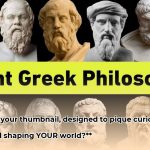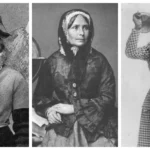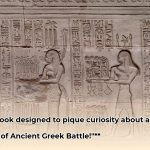Ancient Greece, often portrayed as an exclusively male domain defined by philosophers, politicians, and warriors, holds a far richer and more nuanced history. While records, primarily penned by men, frequently sideline the contributions of women, careful examination reveals a cohort of extraordinary figures who defied deeply ingrained societal constraints. These women forged indelible marks through their profound intellect, strategic acumen, and creative genius, proving that even amidst pervasive patriarchy, fierce and game-changing female figures emerged to shape their world. More on these ancient greek women can be found in detailed studies online. This exploration ventures beyond the familiar narratives to shed light on the influential women who profoundly impacted ancient Greek history, leaving legacies that resonate with enduring power.
The Constraints and Complexities of Women’s Lives in Ancient Greece
To truly appreciate the achievements of these women, it is crucial to understand the restrictive societal backdrop against which they lived. In most Greek city-states, women possessed almost no legal or political rights, confined primarily to domestic roles. Their lives were centered on the oikos, the household, where they managed domestic affairs, oversaw slaves, spun and wove textiles, and raised children. Education for most girls was limited to household skills, and literacy was rare, particularly outside elite circles. Public life, including voting, holding office, or participating in legal proceedings, was almost entirely closed off to them. Women could not typically inherit property or wealth independently, placing them in a perpetual state of legal dependence on male guardians.
However, certain exceptions and nuances existed. Religious life offered a sphere where women could hold esteemed positions as priestesses, participating in festivals and rituals significant to the community. Sparta, in particular, presented a striking contrast to other city-states. Spartan women enjoyed far greater freedoms and responsibilities, including formal physical training, a higher degree of literacy, and the revolutionary right to own and inherit property. This unique societal structure allowed them a level of autonomy unparalleled elsewhere in ancient Greece, fostering a distinct confidence and assertiveness. Understanding these general limitations and specific exceptions highlights the extraordinary nature of the women who managed to break through and leave their indelible marks.
Trailblazers of Intellect and Artistry
Sappho: The Lyrical Genius of Lesbos
Have you ever considered how a poet’s words, penned millennia ago, can still evoke such profound emotion today? Sappho of Lesbos, an iconic lyric poet of the 7th century BCE, stands as a testament to this enduring power. Plato himself, recognizing her unparalleled talent, famously hailed her as the “Tenth Muse.” Her verses offer an exquisite, intimate window into the female experience of love, desire, and profound interpersonal bonds. Though much of her work survives only in tantalizing fragments, these pieces paint vivid pictures of relationships between women, sparking contemporary discussions on female sexuality and challenging conventional views of ancient gender norms. Her emotional depth, masterful use of meter, and lyrical brilliance solidified her place as an influential writer, representing a vital voice for women’s innermost feelings. It is highly plausible that if her complete collection had survived, her impact on the literary landscape and understanding of ancient Greek culture would be even more widespread and deeply recognized.
Aspasia: Athens’ Unofficial Intellectual Architect
Could a woman truly wield significant political and intellectual influence in ancient Athens, a society known for its rigid gender roles? Aspasia of Miletus, the brilliant companion of the eminent Athenian statesman Pericles, exemplifies the rare instance of such authority. Celebrated for her sharp intellect and compelling conversational skills, her home became a renowned hub, attracting Athens’ leading thinkers, philosophers like Socrates, and artists for vibrant intellectual exchanges. Historical accounts even suggest she may have assisted in crafting some of Pericles’ most celebrated speeches, subtly contributing to Athenian politics and shaping public discourse during Athens’ Golden Age. While the exact extent of her political sway remains a subject of academic debate, her profound role in fostering Athens’ rich cultural life is undisputed. Despite facing societal criticism and prejudice typical of the time, often being maligned by comic playwrights, Aspasia remains a powerful symbol of female agency within a world structured primarily for men. Many experts believe her influence was significantly underestimated due to inherent patriarchal biases in historical record-keeping.
Hypatia: Alexandria’s Beacon of Reason
What happens when an unyielding dedication to scientific inquiry and philosophical truth confronts rigid religious dogma? Hypatia of Alexandria, a remarkable philosopher, mathematician, and astronomer, faced this perilous reality. As the respected head of the Neoplatonic school in Alexandria during the late 4th and early 5th centuries CE, she drew students eager to learn from across the entire Mediterranean basin. Her lectures and writings covered a broad range of subjects, including geometry, algebra, astronomy, and philosophy, and she is credited with building astrolabes. Her unwavering commitment to reason and the pursuit of knowledge often challenged prevailing religious orthodoxies, which tragically led to her brutal murder by a Christian mob in 415 CE. However, her enduring legacy continues to inspire, encouraging generations to pursue intellectual freedom, question established dogma, and champion the unyielding pursuit of knowledge. Her death serves as a poignant reminder of the critical importance of protecting academic freedom from ideological suppression.
Phintys of Sparta: Advocating for Female Philosophy
Phintys of Sparta, a notable Pythagorean philosopher from approximately 400 BCE, provides a unique and vital perspective on ancient virtue ethics and women’s roles. As the daughter of Admiral Kallikratides, her prominence is underscored by her being one of seventeen Pythagorean women cited by the ancient scholar Stobaeus. Her surviving philosophical work, “On the Moderation of Women,” illuminates her core beliefs, which align closely with Pythagorean ideals emphasizing courage, justice, and, most prominently, temperance. For Phintys, moderation was paramount for women navigating their domestic lives, requiring both adaptability and discretion. She passionately advocated for self-control in all aspects of life, extending even to religious practices, and consistently stressed the importance of modesty. Her writings reveal a profound understanding of the complex societal pressures and expectations placed upon women in ancient Greek society.
Crucially, Phintys did not perceive women as intellectually inferior. Her philosophical emphasis on moderation should not be misconstrued as an attempt to limit their potential or agency. Instead, it reflects her acute awareness of the practical realities and social environments women inhabited, guiding them to navigate their social spheres virtuously while maintaining dignity and reputation. A cornerstone of her philosophy was her fervent advocacy for women’s engagement with philosophical thought. She compellingly argued that philosophy was not an exclusive domain for men; rather, it was absolutely essential for women’s personal and intellectual development. This was a radical stance, profoundly challenging prevailing norms and asserting that women were equally capable of profound intellectual pursuits and therefore deserved access to comprehensive philosophical education. This perspective would have had a transformative impact in a world predominantly shaped and spoken for by male voices.
Anyte of Tegea: Nature’s Poet and Epigrammatist
Among the “Nine Earthly Muses,” as listed by Antipater of Thessalonica, was Anyte of Tegea, a lyric poet of the 3rd century BCE. Anyte distinguished herself by being one of the first Greek poets to emphasize the natural world in her work, shifting focus away from supernatural subjects like the gods. She masterfully crafted epigrams, short and insightful poems, and was particularly renowned for her poignant epitaphs, especially those for animals. Her poetry achieved such acclaim that it was compared to the works of Homer in antiquity. More of Anyte’s works survive today than any other female Greek poet, admired for their delicate portrayal of life and loss. She is also thought to have run a school for the study of poetry in the Peloponnesus, further cementing her legacy not just as a creator but also as an educator.
Women of Unyielding Courage and Power
Gorgo: Sparta’s Astute Queen
When picturing Spartan women, is your perception typically limited to their role in producing strong warriors? Queen Gorgo of Sparta challenges this simplistic view, revealing a far more nuanced reality. As the daughter of King Cleomenes I and later the wife of King Leonidas I, Gorgo embodied the unique status of Spartan women, who enjoyed an unparalleled degree of freedom and autonomy, benefiting from physical training and intellectual stimulation. Her renowned wisdom and strategic insights proved invaluable during pivotal moments in Spartan history, demonstrating the tangible influence women could exert, even within a highly militaristic society. A famous anecdote recounts her astute reply to a foreign dignitary, asserting that Spartan men obey Spartan women, a statement reflecting their unique societal position. She is also credited with deciphering a crucial secret message on a wax tablet, warning Sparta of Xerxes’ impending invasion, thus playing a direct role in the defense of Greece.
Artemisia I of Caria: The Fearless Naval Strategist
Can you imagine a woman commanding an entire naval fleet in ancient times, defying millennia of gender expectations? Artemisia I of Caria did precisely that, shattering military norms. She led her own ships within the formidable armada of Xerxes I during the Greco-Persian Wars, showcasing extraordinary tactical skill and unwavering courage in battle. Her motivations were complex, as she fought on the Persian side—a decision still debated by historians. However, her formidable abilities as a naval commander were undeniable. She skillfully navigated the treacherous complexities of ancient warfare, securing her indelible place in military history. At the pivotal Battle of Salamis in 480 BCE, she demonstrated remarkable guile, reportedly sinking an allied vessel to escape an Athenian pursuit, an act that Xerxes mistook for valor against the enemy. Her actions prompted Xerxes to famously declare, “My men have become women and my women men,” recognizing her superior strategic judgment. It is widely acknowledged that few men would have dared to challenge her commands at sea, given her demonstrated prowess and strategic mind.
Hydna of Scione: The Underwater Saboteur
Envision a woman bravely diving beneath the waves to sabotage enemy ships during a critical naval confrontation! This astounding feat belongs to Hydna of Scione, a truly unsung heroine of ancient warfare. Trained by her father, Scyllis, an expert diver and swimming instructor, Hydna became known for her exceptional ability to dive deeply and swim long distances. When the Persian navy threatened to destroy the remaining Greek forces at Salamis in 480 BCE, Hydna and her father dove beneath the enemy ships. They cut the anchor cables, causing the Persian vessels to drift, collide, and run aground during a storm, significantly disrupting the Persian fleet before the main battle. This impressive feat, recounted by the Greek historian Pausanius, occurred after the pair had to swim ten miles into the tumultuous sea. For their heroism, statues of Hydna and Scyllis were later erected at Delphi. Hydna’s story exemplifies that heroism transcends gender, emerging from the most unexpected individuals and circumstances.
Telesilla of Argos: Poet Turned City Defender
Telesilla of Argos, a revered poet of the 5th century BCE, transcended her artistic calling to become a legendary military leader. When the Spartan king Cleomenes I decimated the Argive army, leaving their city vulnerable, Telesilla rallied the women of Argos. She ordered the decorative arms to be taken from temples and raided the armory for any remaining weapons, then armed and organized a force of women to defend their home. Meeting the Spartans outside the city walls, her female army inflicted heavy losses. Faced with the dishonor of either slaughtering women or being defeated by them, Cleomenes prudently withdrew his army, saving Argos. While some modern historians debate the literal truth of every detail, this account was widely repeated by ancient sources and is considered plausible, cementing Telesilla’s legacy as a poetic muse who demonstrated extraordinary courage and military leadership.
Agnodice of Athens: Challenging Medical Patriarchy
The life of Agnodice, a woman of the 4th century BCE, stands as a powerful challenge to the male-dominated medical profession in ancient Athens. At a time when women were forbidden from practicing medicine, a law strictly enforced with the penalty of death, Agnodice took audacious action. She cut her hair and disguised herself as a man to study medicine, even traveling to Egypt, where women enjoyed higher regard and could openly practice as doctors. Returning to Athens, still in her male guise, she became immensely popular among female patients, who knew her true identity. Her success, however, led to accusations by male doctors who believed she was seducing their female patients. Put on trial in the Areopagus, she revealed she was a woman to defend herself. The men then threatened to execute her for practicing medicine illegally. Agnodice was ultimately saved by her female patients, who shamed the court into acquitting her, pointing out the male doctors’ jealousy. Following her trial, the laws were changed, allowing women to practice medicine equally with men, thanks to Agnodice’s bold defiance.
Timycha of Sparta: A Symbol of Philosophical Defiance
Timycha of Sparta, a Pythagorean philosopher of the 4th century BCE, became a powerful symbol of courage and conviction. Traveling with her husband Myllias of Croton and fellow Pythagoreans, she adhered strictly to her philosophical tenets, which included the sacredness of life and a prohibition against eating beans, due to beliefs about the transmigration of souls. When Tyrant Dionysius the Elder attempted to capture her group, the philosophers refused to escape through a nearby bean field, leading to their capture. Timycha, pregnant at the time, was brought before Dionysius who sought to force her to reveal Pythagorean secrets under torture. In an extraordinary act of defiance, when she refused to speak, she bit off her tongue and spat it at his feet, choosing mutilation over betrayal. Her ultimate fate remains unknown, but her act became a legendary example of unyielding resolve and martyrdom in the face of tyranny, serving as an inspiration for later Pythagoreans.
Cynisca of Sparta: Olympic Pioneer
Cynisca, a Spartan princess of the 4th century BCE, broke significant barriers in the male-dominated world of ancient Greek athletics. While women were generally excluded from direct participation in the Olympic Games, Cynisca found a way to compete and win. She became the first woman to be an Olympic victor by owning and training a chariot racing team that competed and won at the Olympic Games in 396 BCE and again in 392 BCE. Although she did not drive the chariot herself (a task performed by men), her role as owner and trainer was revolutionary. Her victories were highly publicized, and a statue in her honor was erected at Olympia, an unprecedented recognition for a female athlete. Cynisca’s achievements challenged gender norms and highlighted Sparta’s more progressive, albeit still limited, attitudes toward women’s public roles, demonstrating that women could achieve success even in traditionally male domains.
Summary of Extraordinary Women and Their Impact
| Name | Primary Domain / Notability | Impact on Society / Legacy |
|---|---|---|
















